Bueno Vista University’s Alternative Week of Offsite Learning Program’s (A.W.O.L.) mission is to engage its students in volunteerism in different states and countries, advocating social action and service/civic engagement. This was done through students running alternative spring break programs in 2013. The Jenzabar Foundation proudly presented A.W.O.L. a grant in 2013 to help their efforts. Let’s see what the students have to say about their experience and how the grant helped their humanitarian efforts:
A.W.O.L. Children in Poverty:
BVU students traveled to Montego Bay, Jamaica, and volunteered in nearby Copse, where they assisted with many day-to-day activities at the West Haven Children’s Home, an orphanage for disabled children. In addition to helping feed, bathe and get the children ready for the day, the students helped plan Sports Day, an event similar to the Special Olympics.
Co-advisors for the trip were Dr. Ashley Farmer-Hanson, director of civic engagement at BVU and Dr. Matt Hanson, assistant professor of exercise science.
“Students grow during the week, and they come back inspired to change something locally,” said Farmer-Hanson. “It shows students that there are people all over the world, including in Storm Lake, who we can serve, learn from and work with to solve some of the most crucial social problems.”
“I spent time with a girl who was physically disabled and unable to speak, but on Sports Day, she smiled and giggled the whole time,” said Sharon Feld, a senior athletic training and exercise science major from Bondurant and student site leader for the trip. “Watching our actions bring a little girl so much happiness really left a lasting impression. These experiences create a sense of caring and compassion in people and a desire to do more.”
Sloane Morrow, a sophomore elementary education major from Fort Dodge and also a student site leader, said, “Jamaica has been one of the most eye-opening, life-changing and beautiful opportunities I have ever had.”
![resize_image[1]](https://jenzabarfoundation.files.wordpress.com/2014/11/resize_image1.jpg?w=300&h=147)
A.W.O.L. Environmental and Animal Rescue:
Students concerned with environmental issues and conservation traveled to Costa Rica’s Osa Peninsula to volunteer at the Widecast Sea Turtle Station, where they netted, weighed and tagged turtles, and collected tissue samples to check the endangered sea turtles for parasites before releasing them back to the ocean. They then went to a local elementary school in Matapalo, Costa Rica, where some students helped teach English and others worked to improve the playground by fixing signs, planting a garden so they can use the produce in their cafeteria, cleaning and picking up litter around the school grounds.
Advisors for the experience were Ellen Schiltz, director of recreation services and Dale Scully, associate dean of students at BVU.
“After the students helped the Widecast researchers collect data, it was incredible watching the entire team cheer the turtles on as they made their way back to sea,” said Schiltz. “Not only do AWOL experiences give our students a global perspective, but it shows them how they can work as a team, and how their efforts, no matter where they are, have an impact.”
“It was the first sea turtle I had ever seen, let alone touched,’ said Bonnie Keller, a junior biology and psychology major from Sioux City. “Now, I’m working with individuals committed to saving them. On our last day, one of the researchers gave a presentation using real-time data that we collected. It was incredible to see how the information we gathered would be used, and how it would help protect this endangered animal.”
![resize_image[1]](https://jenzabarfoundation.files.wordpress.com/2014/11/resize_image11.jpg?w=300&h=170)
A.W.O.L. Health and Hunger:
BVU students traveled to Staten Island, N.Y., where they partnered with two organizations. Project Hospitality focuses on hunger, homelessness and outreach to individuals with HIV/AIDS, and Tunnels2Towers concentrates on Hurricane Sandy relief work. Students completed a remodeling project on a home affected by the storm and worked at a food pantry, stocking shelves and helping people shop. After a workshop for people diagnosed with HIV/AIDS, students served and shared meals with people affected by the disease at the Positive Living Dinner event.
Advisors for the experience were Ken Meissner, director of spiritual life and Mark Shea, director of student success at BVU.
“For me and most of the students, the most memorable moments were the interactions we had with people we met during the Positive Living Dinner,” said Shea. “We had an opportunity to hear their stories and understand the issues they face every day. It helped us all take a look at our own lives in comparison to someone facing much greater challenges than we are.”
“AWOL service trips help students realize that they cannot always transform social issues alone, but they can make a difference by taking some face-to-face and heart-to-heart time with others,” said Meissner. “Through an open understanding with people who don’t share our experiences, each of us can capture a glimpse of authentic compassion that can transform the dynamics between strangers. And when we’re no longer strangers, we can work together to address the issues and problems we face today.”
![resize_image[1]](https://jenzabarfoundation.files.wordpress.com/2014/11/resize_image12.jpg?w=300&h=173)
A.W.O.L. Disaster Relief:
Participants in the Disaster Relief trip experienced the after-effects of a weather-related disaster and gained an understanding of the long process of recovery and rebuilding when they traveled to Greeley, Colo., and assisted with cleanup efforts from last year’s catastrophic flooding. Students completed a variety of cleanup tasks, worked with a local Habitat for Humanity chapter, cleared debris from a fish farm, volunteered at a food bank and helped restore a historic horse barn.
Advisors for the experience were Dr. Andrea Frantz, associate professor of digital media and Tami Laursen, director of health services and wellness at BVU.
“An AWOL trip is a break from school, but it’s a different sort of break,” said Frantz. “Education, at its foundation, is about risk-taking and stepping outside your comfort zone, and experiences like these are really new for our students. It’s when you’re out of that comfort zone, when you’re learning about someone else’s life and their struggles by living it, that’s when the lesson really sticks.”
“There was an open mic at a dinner hosted for residents affected by the flood and volunteers from all over the country,” said Beatrice Biedenfeld, a senior management major from Colfax and a student site leader for the trip. “Listening to their stories, I was impressed with the optimism and hope they all had, no matter what was handed to them. It really reminded me how lucky I am and how important it is to give back.”![resize_image[2]](https://jenzabarfoundation.files.wordpress.com/2014/11/resize_image2.jpg?w=300&h=202)
Author: refer to hyperlinks.
What awesome work has been done. We look forward to see what continue to happen at A.W.O.L. Thank you for sharing what the Jenzabar Foundation grant has helped you do. Keep up the awesome service learning experiences.
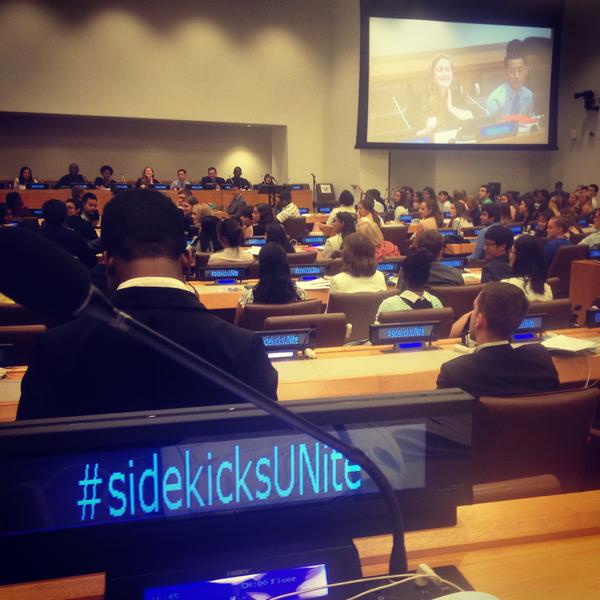
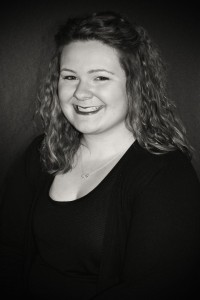 Student Leader Tricia Hohnl
Student Leader Tricia Hohnl
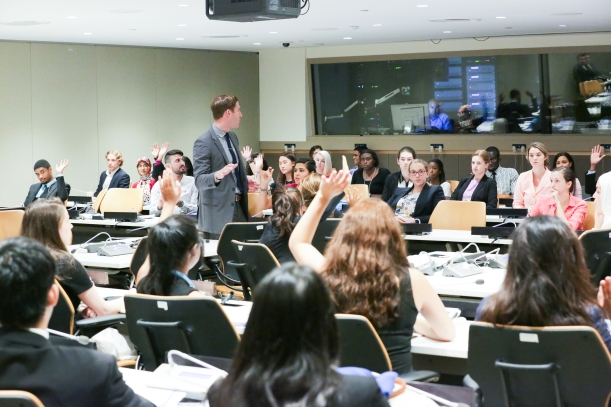 In the summer of 2015, student leader Nissa Jane Parker from Beloit College, Wyoming, joined Millennium Campus Network (MCN) at its seventh annual Millennium Campus Conference (MCC)—MCC15—at the United Nations (UN) Headquarters in New York City. MCC15 was the most comprehensive MCC yet and connected over 450 student leaders and change-makers from over 50 countries. A grant from The Jenzabar Foundation enabled Parker and 94 other student leaders to partake in the five-day conference.
In the summer of 2015, student leader Nissa Jane Parker from Beloit College, Wyoming, joined Millennium Campus Network (MCN) at its seventh annual Millennium Campus Conference (MCC)—MCC15—at the United Nations (UN) Headquarters in New York City. MCC15 was the most comprehensive MCC yet and connected over 450 student leaders and change-makers from over 50 countries. A grant from The Jenzabar Foundation enabled Parker and 94 other student leaders to partake in the five-day conference.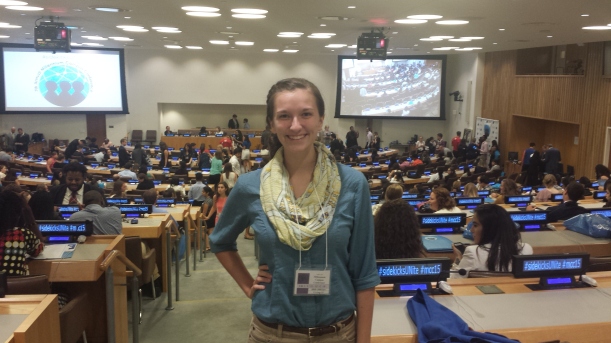 In the summer of 2015, student leader Dava Donaldson from Defiance College, Ohio, joined Millennium Campus Network (MCN) at its seventh annual Millennium Campus Conference (MCC)—MCC15—at the United Nations (UN) Headquarters in New York City. MCC15 was the most comprehensive MCC yet and connected over 450 student leaders and change-makers from over 50 countries. A grant from The Jenzabar Foundation enabled Donaldson and 94 other student leaders to partake in the five-day conference.
In the summer of 2015, student leader Dava Donaldson from Defiance College, Ohio, joined Millennium Campus Network (MCN) at its seventh annual Millennium Campus Conference (MCC)—MCC15—at the United Nations (UN) Headquarters in New York City. MCC15 was the most comprehensive MCC yet and connected over 450 student leaders and change-makers from over 50 countries. A grant from The Jenzabar Foundation enabled Donaldson and 94 other student leaders to partake in the five-day conference.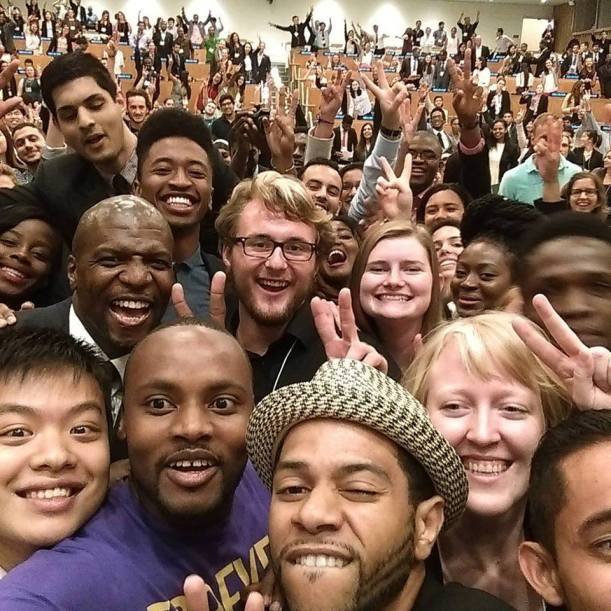
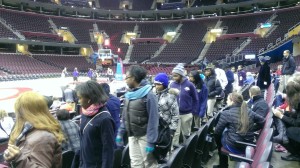
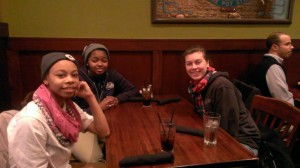
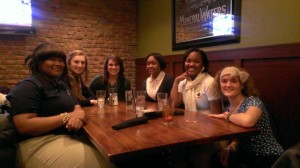
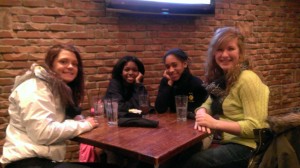
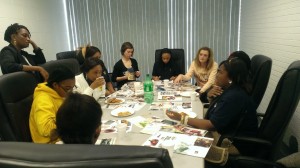
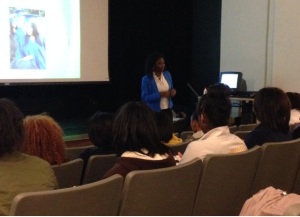
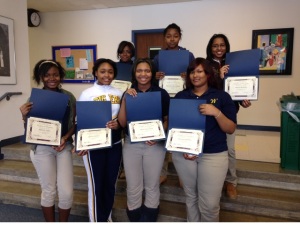
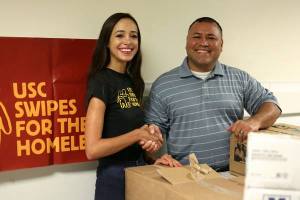
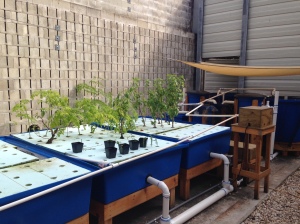
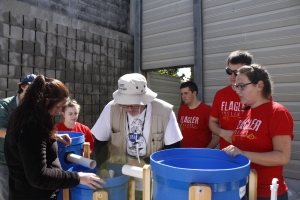
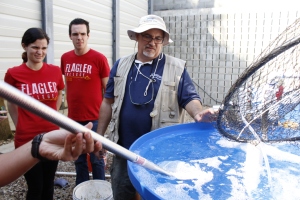
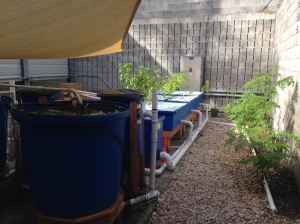
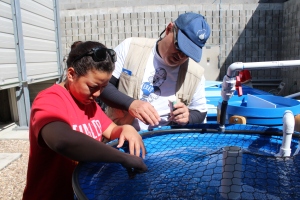
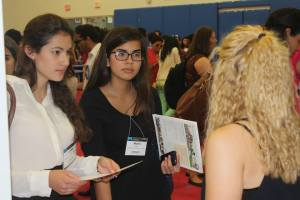

![resize_image[1]](https://jenzabarfoundation.files.wordpress.com/2014/11/resize_image1.jpg?w=300&h=147)
![resize_image[1]](https://jenzabarfoundation.files.wordpress.com/2014/11/resize_image11.jpg?w=300&h=170)
![resize_image[1]](https://jenzabarfoundation.files.wordpress.com/2014/11/resize_image12.jpg?w=300&h=173)
![resize_image[2]](https://jenzabarfoundation.files.wordpress.com/2014/11/resize_image2.jpg?w=300&h=202)